
Taxiway Kilo Reconstruction at St. Louis Lambert International Airport
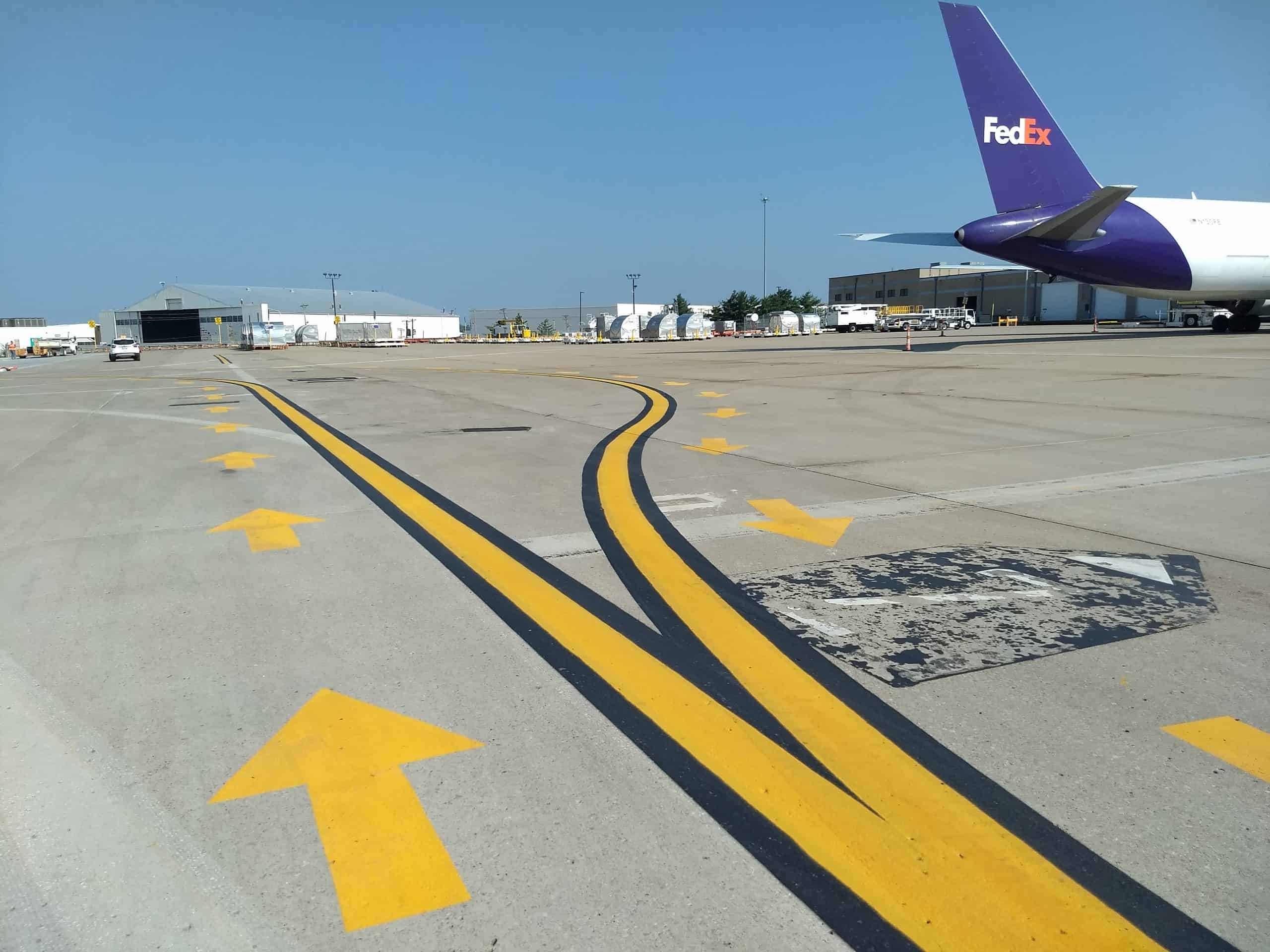
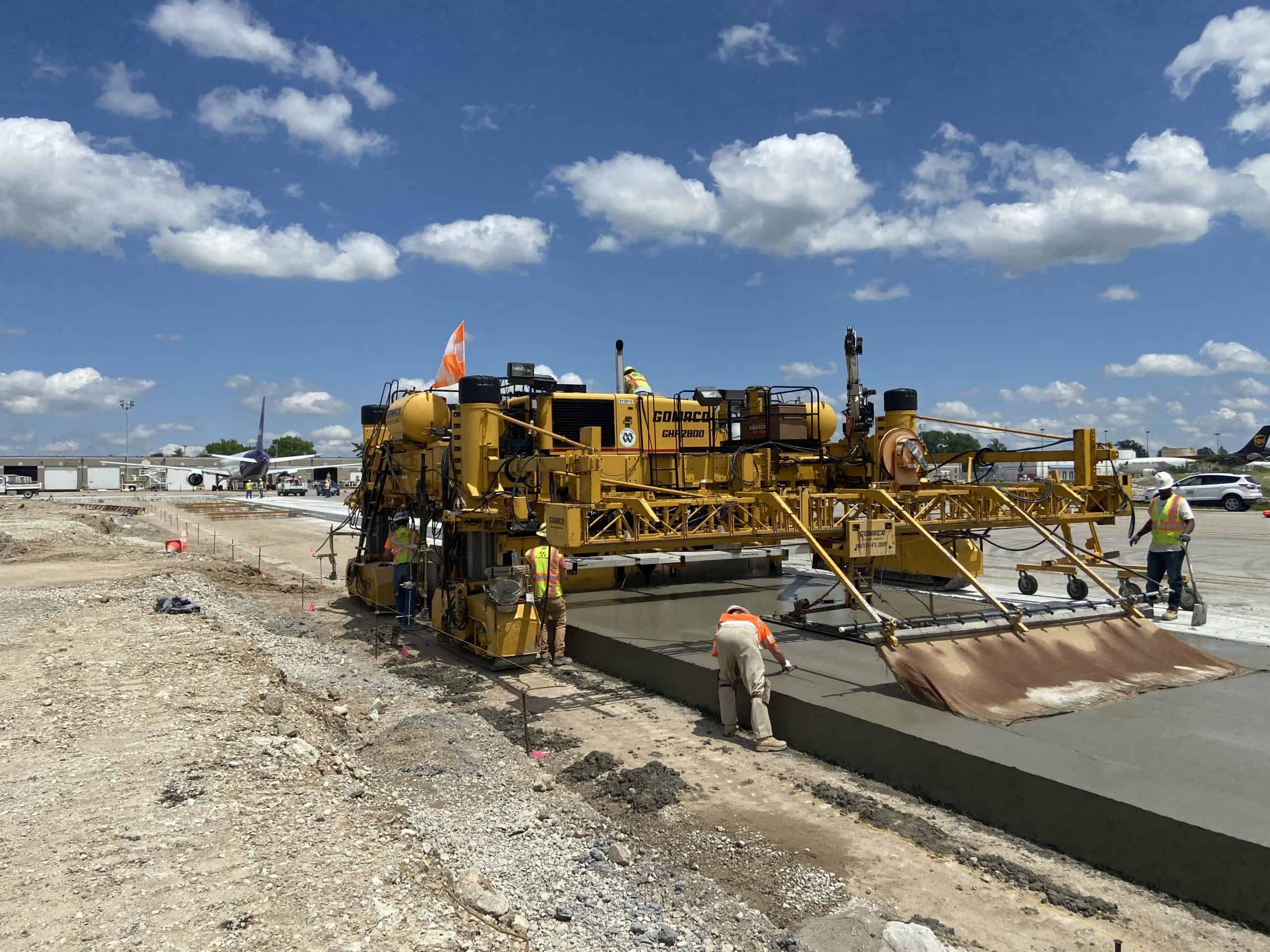
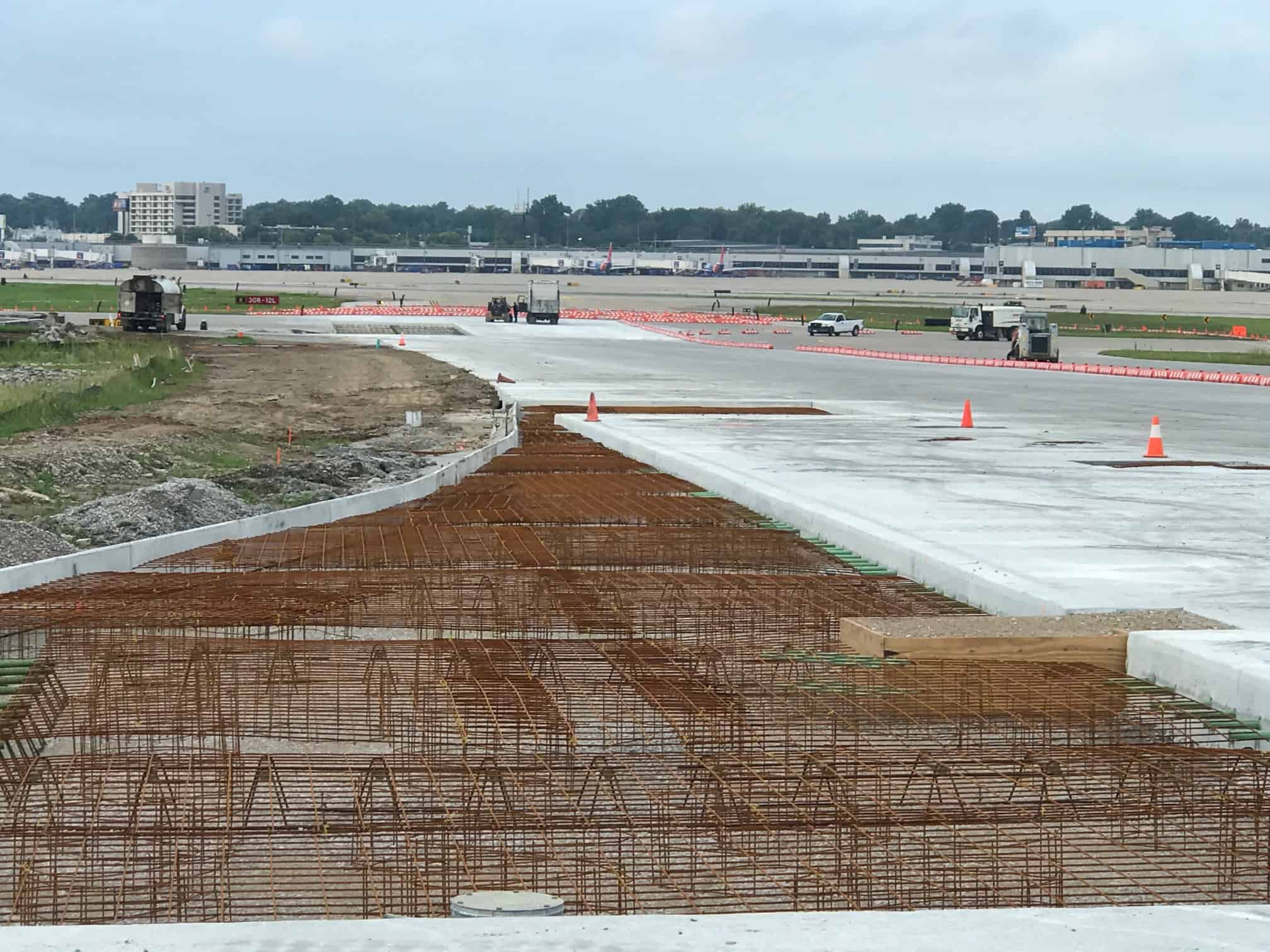
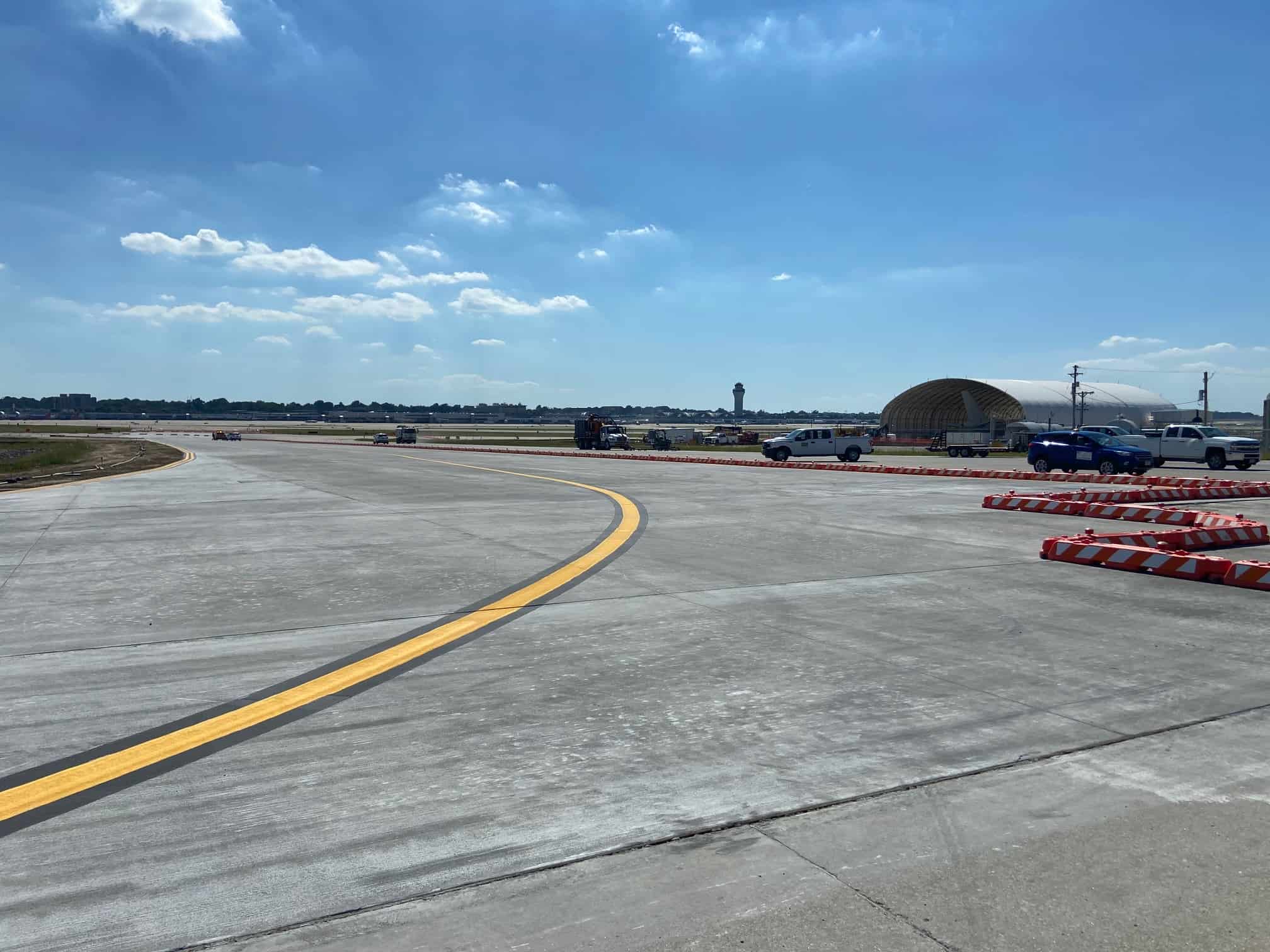
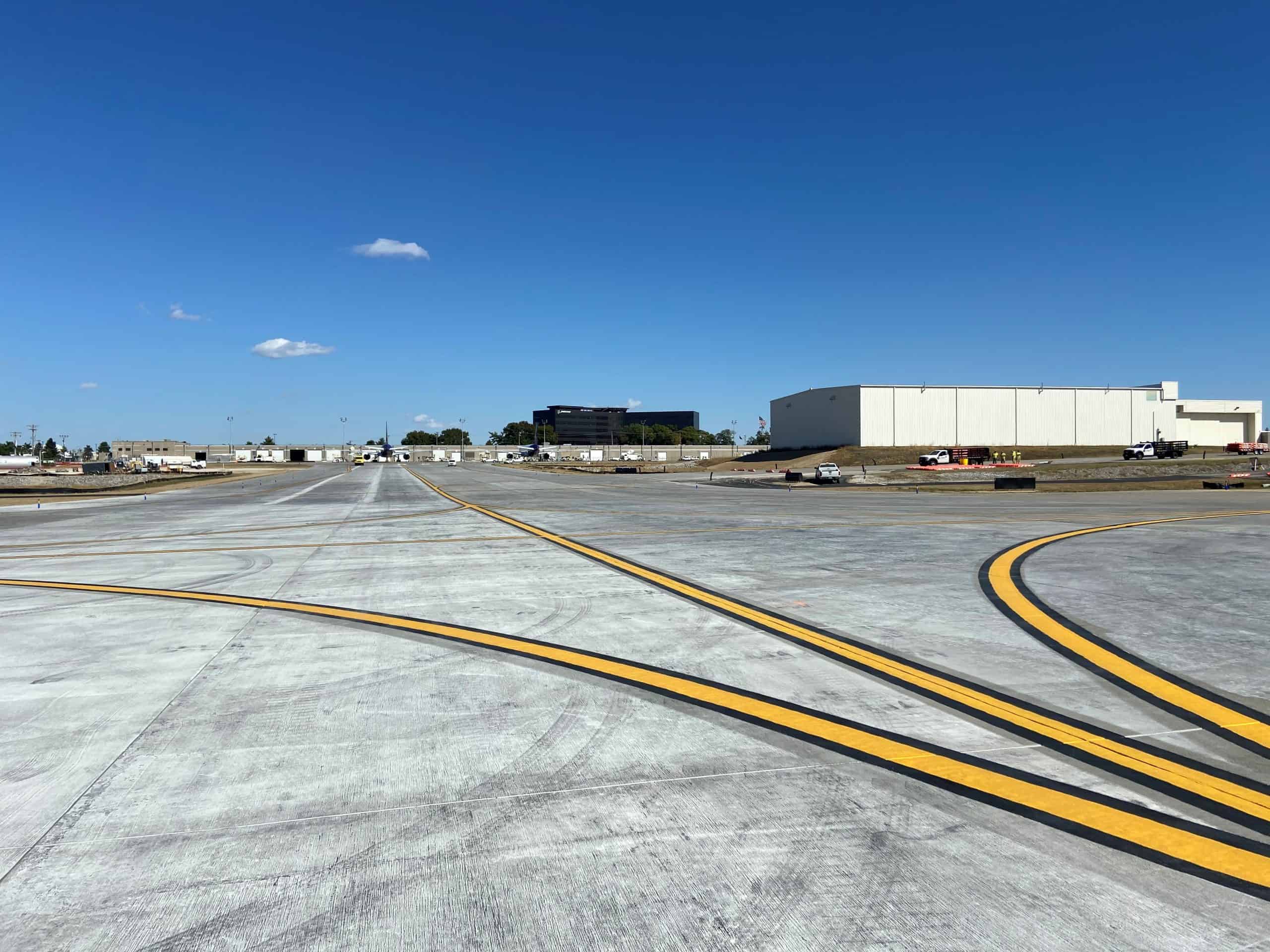
- Airports
Market
- Award Winning
- Construction
- Engineering
- Roadways + Interchanges
- Transportation
Services
- St. Louis, Missouri
Locations
The reconstruction of Taxiway Kilo included several unique and challenging components necessary to allow work to occur while minimizing impacts to airport operations at St. Louis Lambert International Airport (STL) – including some aspects that have rarely been attempted before, if ever. When a taxiway requires full reconstruction, it is almost always the case that the pavement is fully taken out of operation while construction is completed. Because Taxiway Kilo provides the only access route to the airport’s Air Cargo Apron, which serves FedEx, UPS, and Amazon, STL wanted to take every measure possible to avoid disrupting these high-traffic tenants, whose presence provides a significant economic benefit. Nearly 185 million pounds of cargo passed through the facility in a year, a 16.5% increase from the year prior.
Phased Construction
In order to accommodate STL’s and their stakeholder’s needs, a phasing plan was developed that would allow the tenants’ aircraft, some of the largest in the industry, to safely navigate the taxiway while it was being reconstructed. The construction phasing on this project allowed the passage of aircraft down one side of the taxiway while the other side was completely rebuilt. At any given time, there was up to a 3.75’ drop-off as close as 15’ from the aircraft wheels while being towed from the apron to the movement area of the airfield. Continuous barricades lining the work zone, along with temporary markings, temporary taxiway edge lighting, and wing walkers, helped keep the tow vehicles safely on track.
Taxiway Kilo Stakeholder Coordination
With four distinct phases required to complete the project, each modifying the access route for cargo tenants into the apron, effective communication was key to the success of the project. During construction, weekly virtual coordination meetings were held by HR Green between Lambert International Airport staff members, cargo tenants, the designer, and the contractor. The goal of these meetings was to ensure that the various phases were progressing as planned, that the necessary technical and quality components were being properly addressed, and that all safety measures were being implemented on a daily and nightly basis to ensure that everyone goes home to their families at the end of the day.
Overcoming Schedule Challenges
It was critical that the taxiway kilo was completed before November and that the full pavement width returned to STL so that normal cargo operations could be restored before the busy holiday season for the three tenants. Making this happen was no easy feat, as the project’s four phases were required to be completed sequentially, stretching the contractor’s baseline schedule to its limits. Additionally, with cargo operations occurring overnight, the contractor’s work hours were restricted to an 8-hour window during the day, with no weekend work allowed. The contractor was diligent in the completion of their work and was able to hit each critical milestone date to keep the project on track, even as unforeseen site conditions became troublesome. Despite the many challenges the project team faced, this project was opened for use 18 days ahead of schedule.
The project received an Excellence in Concrete Pavement Award from the Missouri/Kansas Chapter of the American Concrete Pavement Association.
American Concrete Pavement Association (ACPA) Excellence in Concrete Pavement Award.
